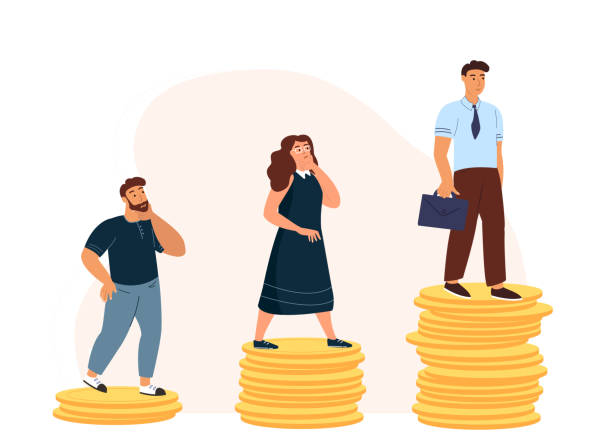Economic inequality is a pressing issue that has garnered significant attention in recent years. It refers to the unequal distribution of wealth and income among individuals or groups within a society. While some level of inequality is inevitable in any society, the extent and consequences of economic inequality have become a subject of intense debate and concern.
Causes of Economic Inequality
Technological Advancements: The advancement of technology has created winners and losers in the job market. Automation and artificial intelligence have led to the displacement of traditional jobs, leaving many workers with outdated skills struggling to find employment. Meanwhile, those with the skills to harness new technologies have seen their incomes soar.
Globalization: The globalization of trade and finance has led to a more interconnected world, but it has also had winners and losers. Multinational corporations and skilled workers often benefit from global markets, while lower-skilled workers in certain industries can find themselves competing with lower-wage workers in other countries.
Education: Access to quality education plays a critical role in determining an individual’s economic prospects. Those with access to good education and training opportunities have a better chance of securing high-paying jobs, while those without such opportunities are more likely to remain stuck in low-wage, low-skilled positions.
Tax Policies: Tax policies can either exacerbate or mitigate economic inequality. Tax cuts for the wealthy and loopholes in the tax code can allow the rich to accumulate more wealth, while regressive taxes can place a heavier burden on low-income individuals.
Inheritance and Wealth Transfers: Intergenerational wealth transfers, such as inheritance, can perpetuate inequality by allowing the wealthy to pass on their assets to their descendants, creating a cycle of privilege.
Consequences of Economic Inequality
Social Unrest: High economic inequality can cause social unrest, including protests and violence, as marginalized groups seek economic opportunities.
Health Disparities: Economic inequality is tied to health disparities, with lower-income individuals facing limited healthcare access, resulting in poorer health and shorter lifespans.
Educational Disparities: Educational inequality can trap people in poverty, as those from disadvantaged backgrounds often lack access to quality education.
Political Polarization: Economic inequality can fuel political polarization, with the wealthy gaining more political influence and policies favoring them over the general population.
Economic Inefficiency: Excessive inequality can hamper economic growth by reducing overall demand for goods and services, impacting businesses and the economy as a whole.
Solutions to Economic Inequality
Progressive Taxation: Implementing a progressive tax system that taxes higher incomes at a higher rate can help redistribute wealth and reduce income inequality.
Access to Education: Expanding access to quality education and job training programs can provide individuals with the skills they need to compete in the modern job market.
Minimum Wage and Workers’ Rights: Increasing the minimum wage and strengthening workers’ rights can help ensure that all individuals receive fair compensation for their labour.
Wealth and Inheritance Taxes: Implementing taxes on wealth and large inheritances can help prevent the concentration of wealth across generations.
Social Safety Nets: Expanding social safety net programs, such as unemployment benefits and affordable healthcare, can provide a buffer for those facing economic hardship.
Corporate Responsibility: Encouraging businesses to adopt fair labour practices and ethical wealth distribution can also contribute to reducing economic inequality.

